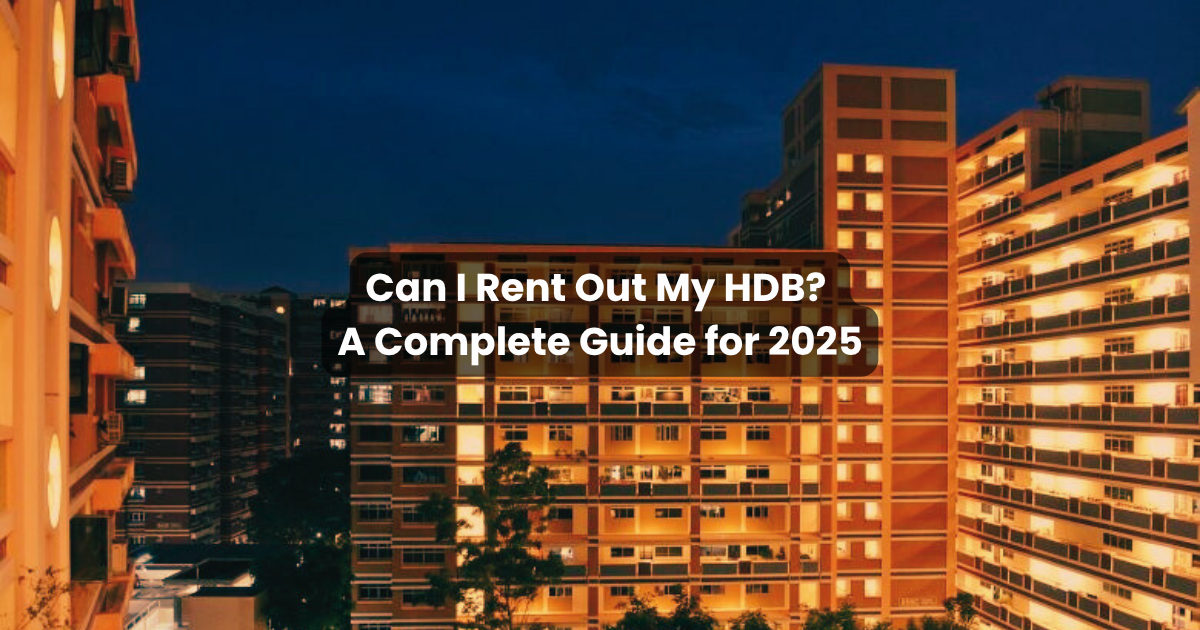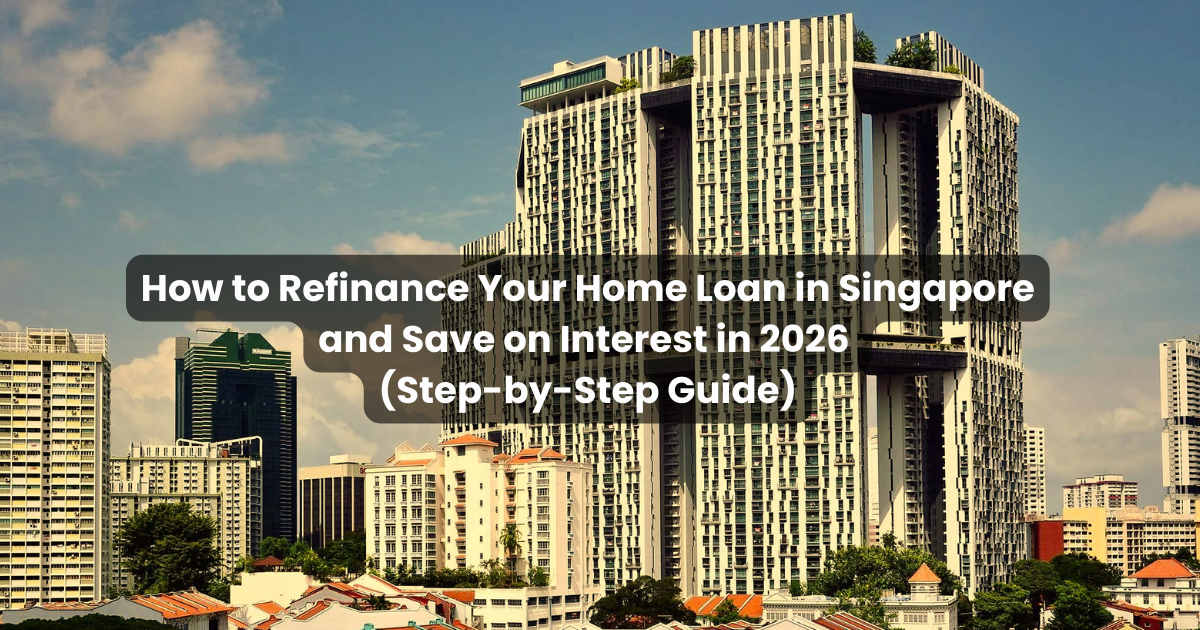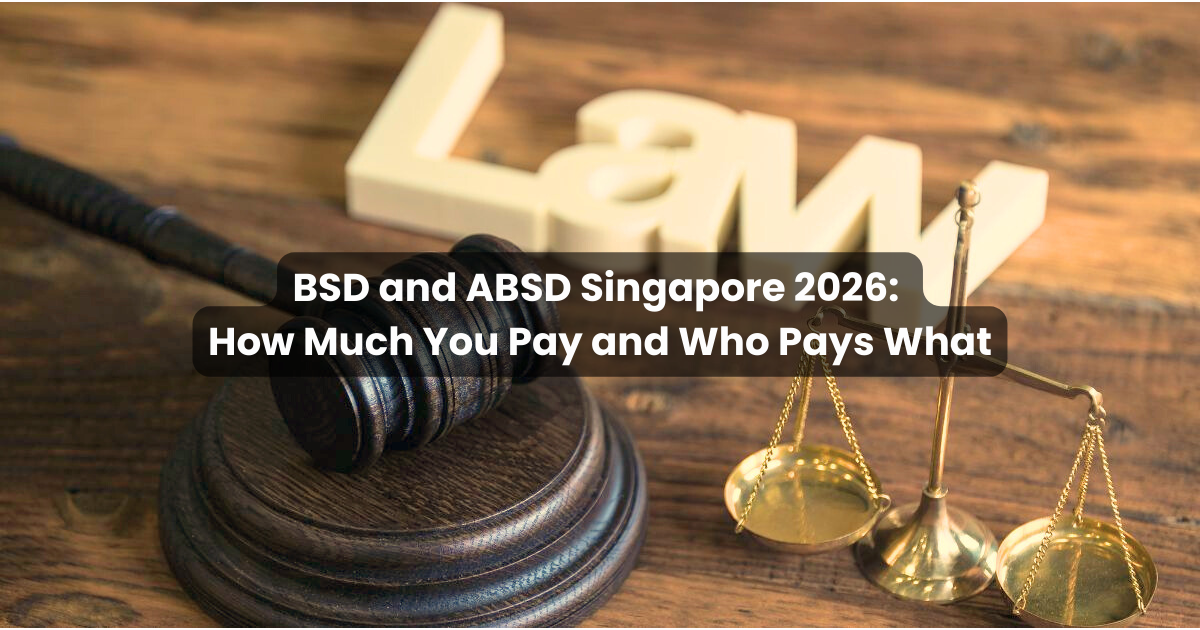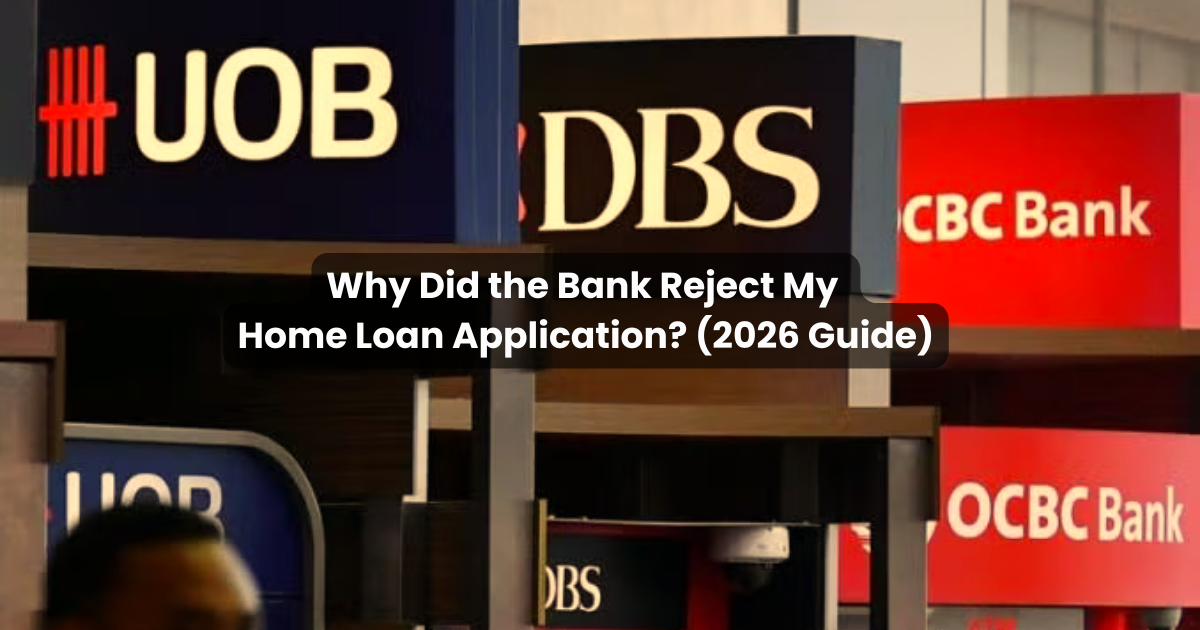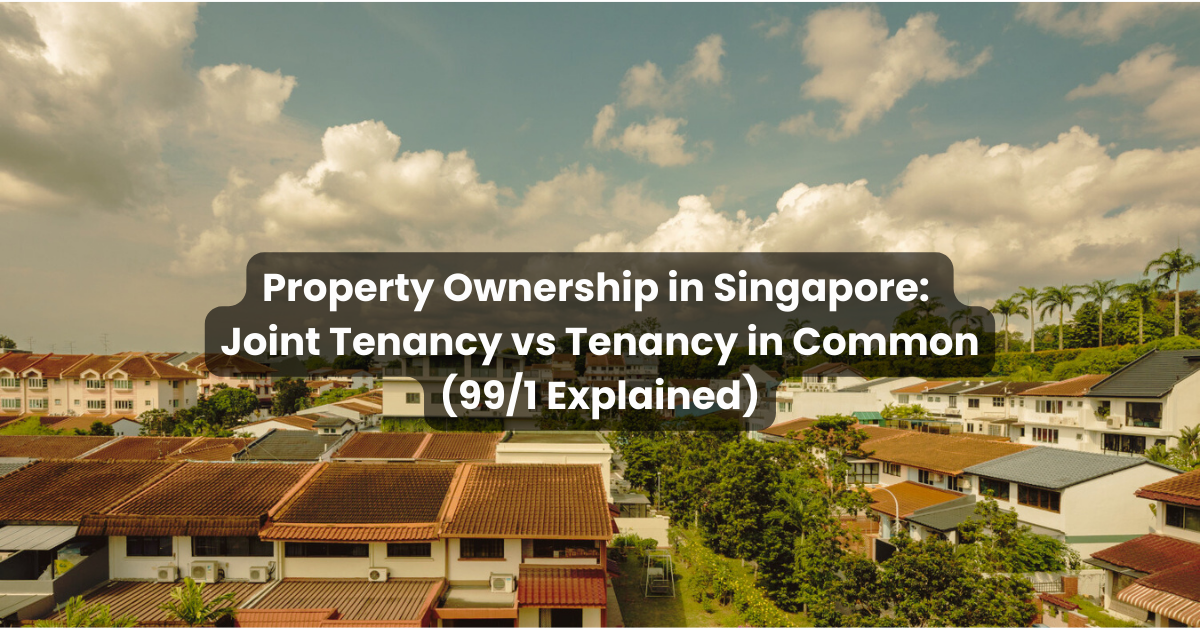- Insights & Updates
Latest News
By Chief Analyst
October 3, 2025One of the most common questions Singapore homeowners ask is: Can I rent out my HDB flat?
With rising private property prices, evolving rental demand from expatriates and locals, and new government regulations, the Housing & Development Board’s (HDB) rules on subletting remain an important consideration for anyone owning public housing. Renting out a HDB flat may provide valuable passive income, but the process is regulated closely to balance homeowners’ financial needs with Singapore’s public housing mission.
This article provides a complete guide to renting out your HDB in 2025, covering eligibility conditions, minimum occupation requirements, the process of approval, income tax obligations, and the pros and cons of subletting. It also examines whether renting out your HDB makes financial sense compared to selling or upgrading to a private property.
Who Can Rent Out Their HDB?
Not all HDB flat owners are allowed to rent out their unit. The eligibility rules are shaped by HDB’s public housing policies, which ensure that flats primarily serve as homes rather than investment assets.
As of 2025, the general rule is that owners must have fulfilled the Minimum Occupation Period (MOP) before renting out the entire flat. The MOP is typically five years for both new flats purchased from HDB (including Build-to-Order, Sale of Balance, and SERS replacement flats) and resale flats bought on the open market with a housing grant. Only after this period can owners apply to rent out the whole unit.
For partial subletting, such as renting out spare rooms, owners may do so without completing the MOP, provided they continue living in the flat themselves. This is a common practice among young couples or singles who want to offset their mortgage costs while still occupying the unit.
The exception to these rules lies with certain older flats or specific policy updates. For instance, Singapore Permanent Residents (SPRs) face tighter restrictions compared to Singapore Citizens, and HDB retains discretion to adjust rental eligibility depending on housing demand.
Minimum Occupation Period (MOP): Why It Matters
The MOP is the cornerstone of HDB’s subletting policy. It ensures that buyers treat their flats as genuine homes rather than quick investment vehicles. For most flats, this period is five years, though certain cases, such as Prime Location Public Housing (PLH) flats, impose stricter occupation requirements of ten years before renting out or selling.
Consider a couple who purchased a resale HDB flat in 2020. By 2025, they would have fulfilled the MOP and thus be eligible to rent out the whole flat. By contrast, a family who collected their keys to a BTO unit in 2022 would need to wait until at least 2027 before they could legally rent it out.
Failing to respect the MOP can lead to penalties such as forced repossession or financial sanctions. HDB actively enforces these rules, and illegal rentals can result in hefty consequences for owners.
The Application Process for Renting Out
Renting out an HDB flat is not as simple as signing a lease with tenants. Owners must apply through HDB and obtain approval before subletting. The process involves:
- Eligibility Check – Ensuring that the MOP has been met and that the intended tenant(s) are legally allowed to rent HDB property (foreigners on valid work passes, students, or PRs are eligible; tourists are not).
- Submission of Application – Done online via the HDB portal, requiring owner details, tenant particulars, and proposed lease duration.
- Approval and Fees – HDB charges a subletting registration fee, payable when the application is submitted. Approval is usually granted within two weeks if all documents are in order.
- Lease Renewal – Subletting approvals are typically valid for up to three years (if the tenant is a Singapore Citizen or PR) or up to two years (if tenants are non-citizens). Renewal requires fresh approval.
Owners are responsible for ensuring tenants comply with Singapore’s immigration rules. Renting to overstayers or individuals without valid passes is an offence.
Income Tax and Rental Obligations
Many HDB owners underestimate the tax implications of renting out their flats. Rental income is taxable and must be declared in the owner’s annual income tax return. The amount taxable is the gross rent collected, minus deductible expenses such as property tax, agent fees, repairs, and maintenance costs.
For example, if a couple rents out their 4-room flat at S$3,500 per month, their annual rental income is S$42,000. If they incur $2,000 in agent fees and $1,000 in minor repairs, their net taxable rental income is $39,000. This sum is added to their total annual assessable income and taxed at their prevailing personal tax rate.
Owners must also continue paying property tax on the rented unit. For owner-occupied flats, tax rates are lower, but once rented out, the flat is subject to non-owner-occupied residential property tax, which ranges from 12% to 36% of the Annual Value, depending on the property’s assessed rental value.
Financial Pros and Cons of Renting Out
Renting out an HDB can be financially rewarding, but it comes with trade-offs.
On the positive side, subletting provides passive rental income that can offset mortgage repayments or supplement retirement savings. For example, a couple who bought a resale flat at S$500,000 might still owe $250,000 on their mortgage. By renting out the flat at $3,200 per month, they can cover their monthly instalment while building equity.
Moreover, in Singapore’s tight rental market, exacerbated by rising condo rents, HDB flats remain an affordable alternative, ensuring strong demand from both locals and expatriates.
However, there are downsides. Once rented out, the owner loses owner-occupier tax relief and faces higher property tax rates. Additionally, rental yields from HDB flats, while stable, are typically lower than from private condominiums, which are more popular among expatriates seeking lifestyle facilities. Furthermore, relying heavily on rental income exposes owners to the risk of vacancy during economic downturns.
Renting Out vs Upgrading to Private Property
A critical consideration for many Singaporeans is whether to rent out their HDB or to sell and upgrade to a condominium.
Private properties offer greater flexibility in leasing, with no MOP restrictions and often higher rental yields thanks to lifestyle amenities. They also allow equity term loans (ETLs), providing liquidity options unavailable to HDB owners. However, upgrading comes with higher financial commitments, including Additional Buyer’s Stamp Duty (ABSD) if the HDB is retained, and stricter Total Debt Servicing Ratio (TDSR) limits.
For example, suppose a family owns a fully paid HDB worth S$600,000. They may rent it out for $3,000 per month, yielding about 6% gross annually.
Alternatively, they could sell and use the proceeds as downpayment for a $1.5 million condo, which may fetch $5,000 in monthly rent. The gross yield is similar, but the financial exposure is larger, and risks of vacancy are higher.
Read more about Hidden costs of buying a Condo here
Common Misconceptions About Renting HDB
Several myths persist around HDB rental rules. One common misconception is that owners can rent out their HDB immediately after purchase. In reality, the MOP requirement is strictly enforced. Another myth is that tenants can be freely selected. HDB in fact imposes a cap on the number of occupants per flat size (e.g., six occupants for a 4-room flat). Owners also cannot rent to tourists or individuals on short-term visit passes.
It is also false to assume that HDB does not monitor subletting. Enforcement has tightened in recent years, with random inspections and investigations into unapproved rentals. Owners found flouting rules can face compulsory acquisition of their flat.
The Social and Policy Dimension
Beyond dollars and cents, the government regulates HDB rentals to preserve the ethos of public housing. Flats are meant to be primarily homes, not speculative assets. At the same time, allowing controlled subletting recognises that homeowners’ needs evolve; some may relocate temporarily for work or education abroad, while others may require rental income for retirement.
As Singapore’s housing market matures, policymakers must continue balancing these competing priorities. New rules for Prime Location flats illustrate this tension: stricter MOPs aim to maintain inclusivity, but they also limit owners’ flexibility to rent out.
Conclusion
So, can you rent out your HDB? The answer is yes, but only under specific conditions. Owners must fulfil the MOP, obtain HDB approval, and comply with strict tenant eligibility rules. While renting out can provide valuable passive income, it also entails higher property taxes, the loss of owner-occupier benefits, and potential vacancy risks.
For some, retaining and renting out a HDB flat is a stable source of cashflow. For others, especially those with aspirations to grow wealth, selling and upgrading to private property may offer better long-term returns. The right decision depends on your financial profile, risk appetite, and housing goals.
As with any major financial move, it pays to evaluate your options carefully, seek advice from mortgage specialists, and ensure compliance with HDB rules. With proper planning, renting out your HDB can be a strategic step in building long-term financial security.
Explore related content by topic
Deciding between Joint Tenancy and Tenancy in Common is one of the most important choices when buying property in Singapore. The manner of holding affects not only ownership shares but also how the property is passed on through wills, the Intestate Succession Act, or the right of survivorship. This guide explains the key differences, including the popular 99/1 Tenancy in Common structure used in decoupling
Should you use CPF or cash for your monthly home loan? Learn the pros, cons, and strategies to maximise retirement savings and cash flow in Singapore.

